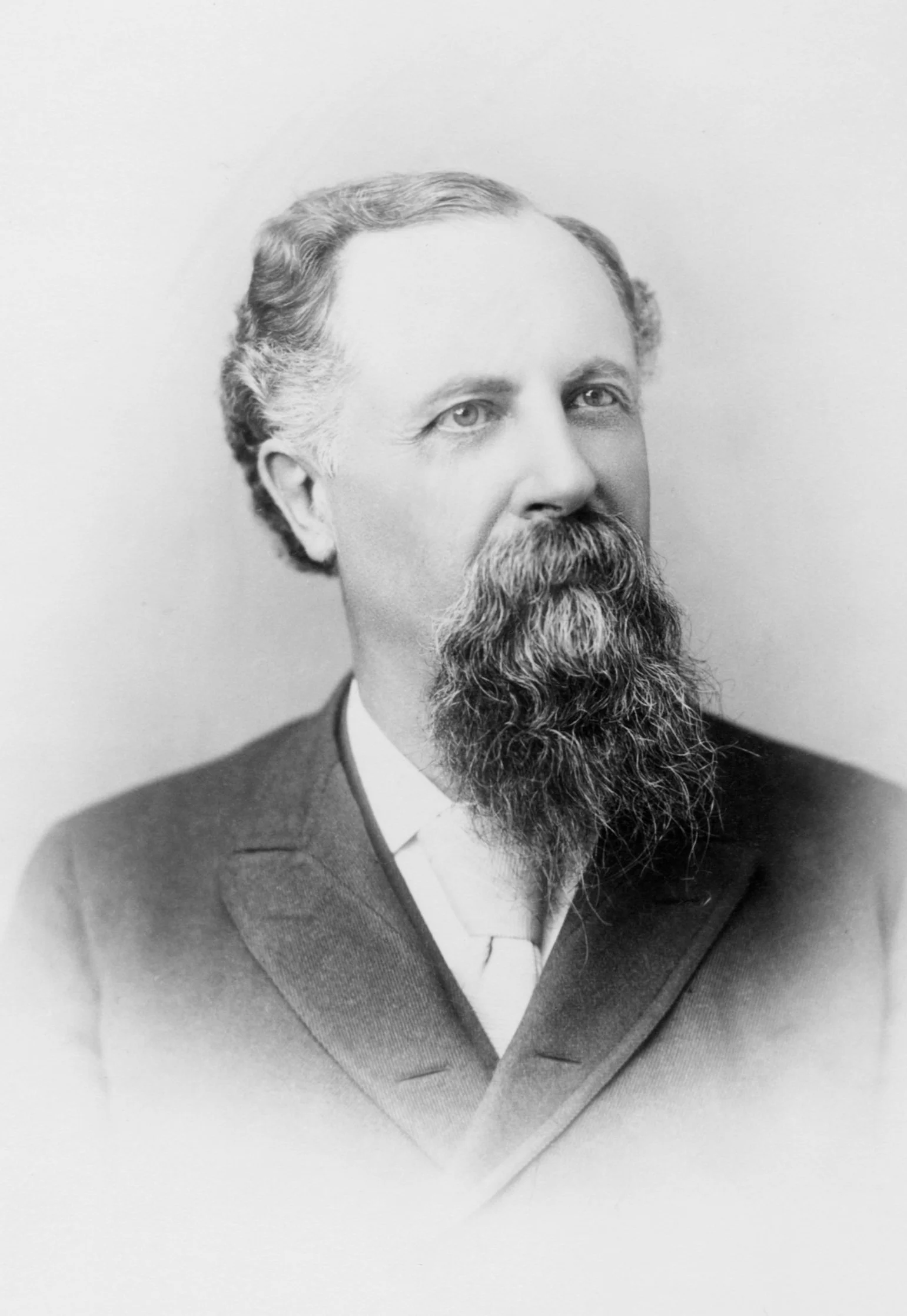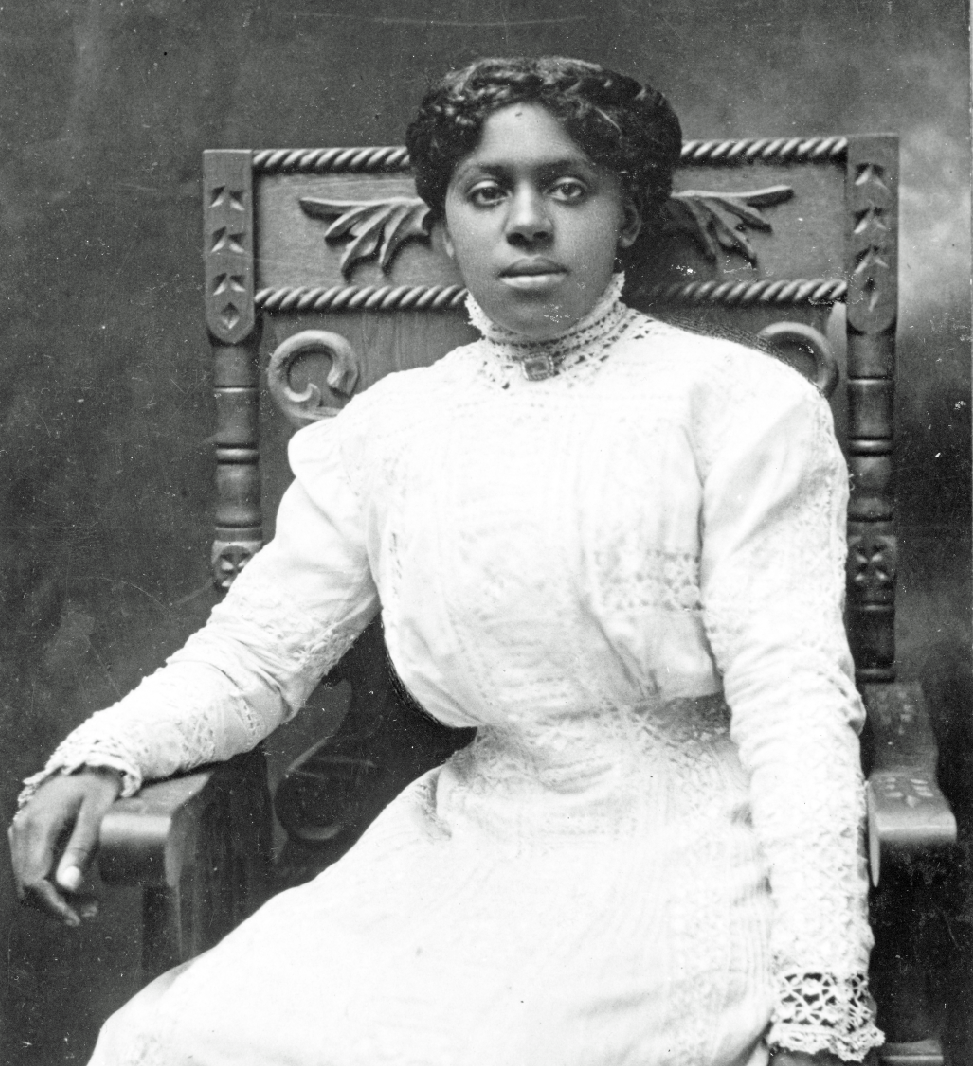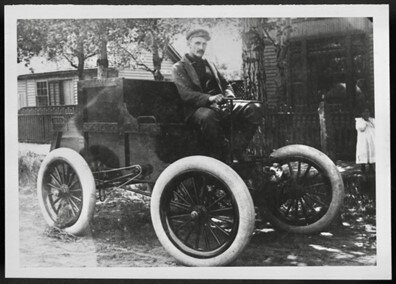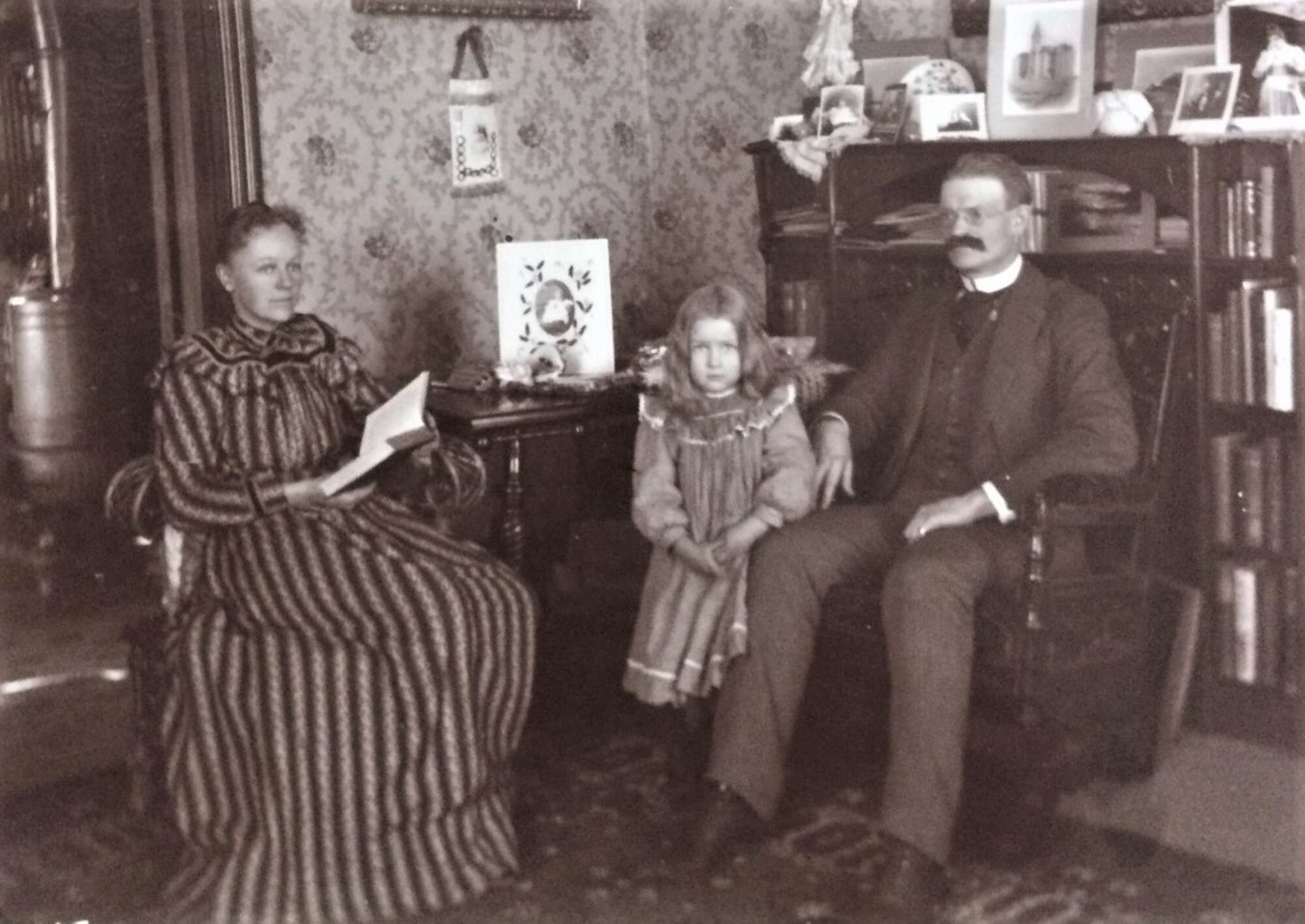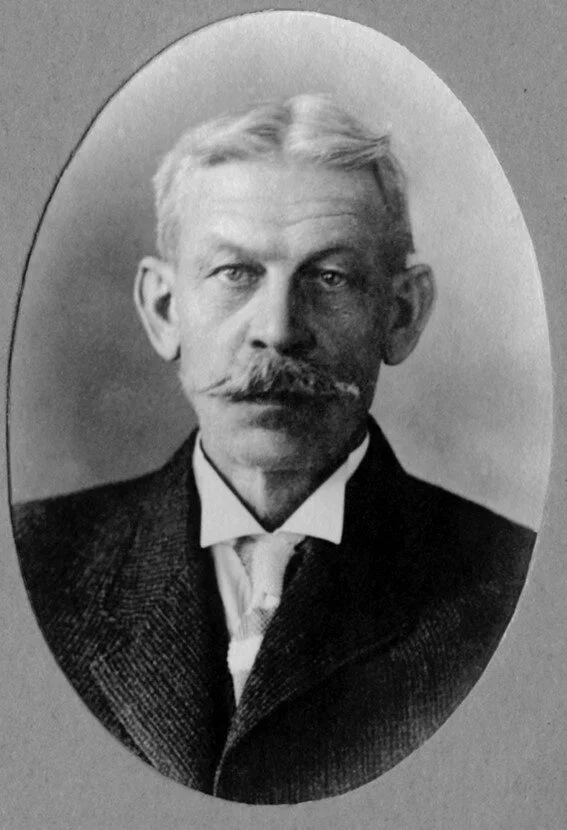
Laramie’s Living History — People
A series of stories prepared for the Albany County Museum Coalition, an alliance of institutions that promote Laramie’s historic and cultural resources. This series originally appeared in the Laramie Boomerang.
The people who comprise the Albany County community come from several social strata, ethnicities, and races.
Looking for someone specific?
Search for people related to Albany County and Laramie, Wyoming.
For a better search experience, use specific words and phrases, like “Thornton Biggs”, “Professor Larson”, etc.
Melville C. Brown - President of Wyoming’s 1889 Constitutional Convention.
M.C. Brown’s legal career spanned 60 years and thousands of cases during the years Wyoming was moving from territory through early statehood. President William McKinley’s appointment of Brown to a federal judgeship in Alaska in 1900 proved disastrous for the attorney, however, who returned to Wyoming where he continued to practice law, but on a much smaller scale.
Pioneering Women Physicians of WyomingDr. Lillian Heath Nelson, Dr. Florence DeWitt Patrick
Two women who became pioneering Wyoming physicians both graduated in the 1890s from the same medical school in Keokuk, Iowa. They weren’t the first in the U.S.; Dr. Elizabeth Blackwell has that honor. She graduated from medical school in New York in 1849. Also, an intriguing listing in the earliest Laramie City Directory by J.H. Triggs, published in 1875, shows “Mrs. Babcock, doctoress.” So far nothing more has been found about her, she does not turn up in any other Laramie records that have been consulted.
Carrie Burton Overton - First African American Girl To Attend the University of Wyoming.
Of the 8,207 residents enumerated in the 1900 census for Laramie, Wyoming, ninety were African American. Of these, seven were girls of school age, but only two were enrolled. Although not written about in any historical overview of Laramie, one, Carrie Burton, would overcome adversity and go on to be the first African American woman to attend the University of Wyoming, a well-known New Yorker and the woman profiled in the 1972 Boomerang article.
Buried twice: “Gold Fever” leads to tragedy for a Laramie couple
In early spring 1876, the Metzes traveled the wagon road from Cheyenne to Fort Laramie and Custer. It is not clear which direction they were going when they were attacked on April 16, 1876. There were no survivors of their little group of four that included Mr. and Mrs. Metz, their driver named “Mr. Simpson,” and another woman.
Laramie’s West Side, a unique neighborhood
Probably the most cohesive neighborhood in Laramie is the West Side--not to be confused with West Laramie, which is beyond the Interstate. There’s a sense of place for folks living on the West Side which explains much of its attractiveness–a strong attachment that may seem unusual to residents of other Laramie neighborhoods
Albany County, Wyoming’s New York connection
Albany County was created by the Dakota Territory legislature in 1868. Learn about the man who had significant impact on the county and its county seat.
Catherine Mary Erhardt; Laramie’s first dairywoman
New towns need milk, and Laramie City in 1868 was no exception. With no established farms in the vicinity, one enterprising individual arrived at the new town site with dairy cows. A newspaper article written by W. E. Chapman claimed that Catherine Mary Erhardt (1827-1921) had a “monopoly in the milk business” in Laramie. He goes on to say that “Indeed, she was about the only person who served milk for the first five or six years of the city’s existence.”
Laramie man survives World War II kamikaze attack
Dale St. John was stationed aboard the USS Mahan on December 7, 1941, when it was attacked by Japanese kamikaze planes. He survived to tell the story.
Laramie newspaper man and humorist.
Edgar Wilson “Bill Nye” (1850-1896) was editor of the Boomerang for two short years and might have continued longer had it not been for a nearly fatal bout with spinal meningitis. The 1883 illness required him to recuperate elsewhere than the Gem City, and left him with a “delicate” constitution, as those who knew him remarked.
Emma Howell Knight’s legacy in education: Equals that of her husband and children.
When Emma Howell Knight (1865-1928) became a widow at age 38, she was left with four children ages 2 to 12. This was not likely the way she pictured her life unfolding. Her husband Wilbur Clinton Knight (1858-1903) was just 45. No one could have predicted that after a sudden five-day illness he would die of what the doctors said was inoperable peritonitis caused by a ruptured appendix.
Elmer Lovejoy – Automotive Pioneer
The time: Saturday, May 7, 1898. The place: Laramie, Wyoming. The occasion: the city’s first steam-powered “horseless carriage” made its debut with Elmer Lovejoy, its inventor, in the driver’s seat. This was but one of many highlights in the fascinating life of one of Laramie’s most significant and widely known residents
Elmer Lovejoy, a “genius with tools.” He ushered in the auto age to Laramie
Elmer Lovejoy (1872-1960) was widely viewed as “one of Laramie’s busiest and most distinguished mechanics in the past half century,” according to Laramie reporter Vandi Moore. In addition to introducing his “horseless carriage” as the first automobile built west of the Mississippi River, he made many other contributions
Burt C. Buffum: early UW agriculturalist and avid photographer
From 1891 – 1907, Burt C. Buffum was a popular member of the town and gown community in Laramie. As a faculty member at the University, he made significant progress toward the development of Wyoming agriculture. Among his many contributions to the state and county, perhaps the most enduring legacy is his large collection of photographic negatives—an exceptional resource for regional historians.
Following Frank Tweedy's Valuable Plants. How they traveled from the wilds of Wyoming to New York City and back.
Frank Tweedy was born, raised, and educated in New York, graduating from Union College in 1875 with a degree in civil engineering. He began his surveying career the next year in the Adirondacks, followed by a stint as a sanitation engineer in Rhode Island. All the while, he collected plants.
Frank and Shirley Lilley and the Chimney Rock Ranch
In 1952, Frank and Shirley Lilly probably never dreamed that they would forever be closely associated with the historic Chimney Rock Ranch. Frank had finished his degree in Animal Science at CSU and three months after their marriage secured a job as ranch foreman on the Chimney Rock Ranch. At 57,000 acres, part of it in Larimer County Colorado, this southern Albany County ranch was just the challenge for the newlyweds; Frank never left it.
William and Harvey Shipman tragedies: Deaths of father and son: 1870 – 1877
In mid-July 1870, 22-year-old Harvey Shipman was living in the Laramie valley near Sherman. Listed as a gold miner in the census, he boarded with teamster James Sherrod in the vicinity of ranchers Philip Mandell and Thomas Alsop. A week earlier, Harvey’s father William Shipman had been killed in North Park, Colorado, in a gruesome manner. Within the year, Harvey himself would be incarcerated at Ft. Sanders, awaiting trial in Laramie for killing a man with a shovel.
Thornton Biggs—a true Wyoming “cowpuncher” Born a slave in the east, becomes a valued ranch hand
When Thornton Biggs (c. 1855-1941) was born he was a “possession” of his slave-holding owner in Maryland. His parents were slaves and it seemed likely this would be his future too, a long way from Wyoming.
J.H. Brazier, superintendent of the “huge monster” Shows how rail is made in Laramie—1875
Laramie offered large tax offsets to bring a large “rollling” mill to town. The UPRR selected experienced rolling mill operator John Henry Brazier (1836-1908) to be the superintendent of the enterprise. Brazier arrived in early 1875 from Ohio and told the newspaper that he was very pleased with the community and the work that had been done to get the factory built.
“Mr. Wyoming,” historian T.A. Larson Mines Wyoming politics and culture
Professor Larson’s chief contribution to the history profession would be as an educator and author. Though he did publish a few scholarly papers in his long career at UW (1938 – 1975), he is chiefly remembered today for the 16,000 students he taught in Wyoming history classes at UW and for his five books on Wyoming history.

